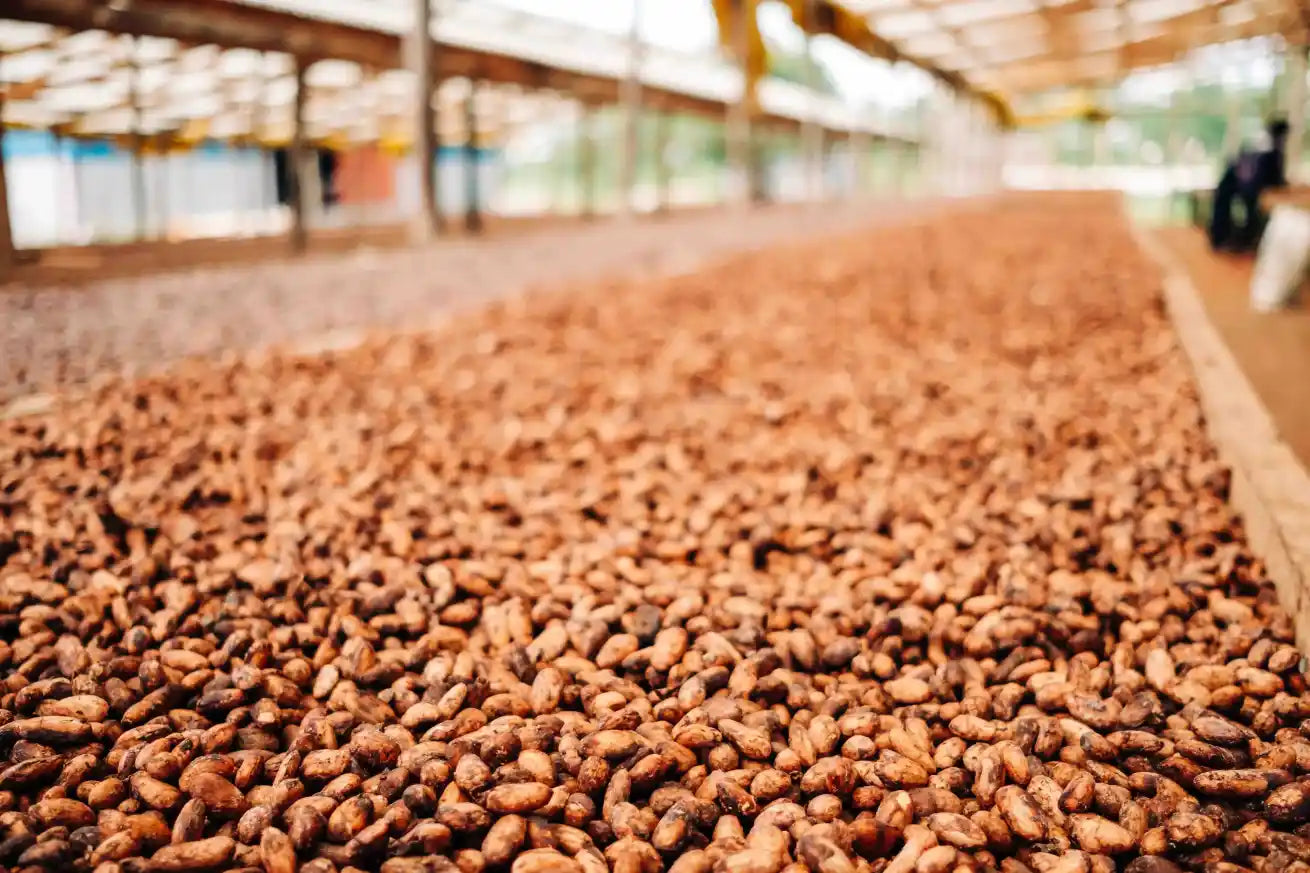Taking enough breaks is a real challenge for many in their stressful everyday lives. You rush from appointment to appointment, make one phone call after another, write email after email, and in all the hectic pace, small breaks, including a quiet meal, are often missed. Small breaks and a healthy diet are essential for our well-being and productivity. In fact, mindful breaks can even help you work more focused, allowing you to do more work in less time. Do you have the feeling that the seemingly endless to-do lists will soon grow over your head, that eating regularly is not feasible for you and that taking a mindful break seems virtually impossible? Then you should definitely read this article!
Why are breaks important?
Our entire life is characterized by alternating opposites, so-called biological rhythms: we breathe in, we breathe out, the waking state is replaced by sleep, we tense up and we relax. The latter in particular, relaxation, is unfortunately often neglected in today's working world. And many jobs involve mental tension, which, in contrast to physical tension, shows up less quickly. If tension builds up, we work with less concentration, our performance decreases and the frequency of errors increases. To avoid these processes, breaks are essential. That's why in some professional fields that involve responsibility for the well-being of many people, such as air traffic controllers, breaks are mandatory.
Breaks have concrete physiological effects: They help to inhibit the release of stress hormones, which make you sick in the long term. Taking breaks also makes your heart beat slower, which reduces the risk of heart problems. When we rest, we also relax muscles, which can counteract painful cramps. And important physiological processes take place, such as cell renewal, strengthening the immune system and digestion.
And we also benefit from breaks on a mental level. For example, when it comes to personal development: In moments when the brain appears inactive, for example when we daydream and let our thoughts wander or we look out the window, personal experiences are processed. In the so-called default mode network activity of the brain, the mind tries to learn from these experiences and to derive benefits for future experiences from these same memories. In addition, what is learned is consolidated during sleep and creativity is activated. Who hasn't been given the advice to "sleep on it" before making an important decision? Sufficient periods of rest help us to break out of familiar paths and take new paths and thus make better decisions.
Why are mindful meal breaks important?
So breaks are important. But above all, quiet meal breaks should not be neglected in our everyday lives. Because under stress, almost everyone's natural eating behavior changes:
There are basically three “stress eating types”. Firstly, there are the stress eaters, who eat more than usual when they are stressed. Then stress-hungry people who have little or no appetite during stressful times. And then there is a small group of people whose eating behavior hardly changes under the influence of stress. If you belong to one of the first two groups mentioned, you are certainly aware of the negative effects of the problem. Because neither extreme is healthy. Some eat almost non-stop and are usually rather unhealthy, which can result in obesity, digestive problems and other health problems. The others embody the opposite extreme, lose weight extremely during periods of stress and can, for example, suffer from symptoms of nutrient deficiency.
But even regardless of stress, many people eat on the side these days without paying much attention to this important part of everyday life. We eat with our cell phones in our hands, while reading the newspaper or watching TV. This isn't really good for your health either: we chew harder, which makes digestion more difficult. And we tend to eat more because the distraction causes us to feel full later. And instead of listening to our bodies, we eat at regular times, often out of habit and not because we are truly hungry.
What mindful breaks have to do with our well-being and productivity
It is obvious that our well-being is lacking due to a lack of breaks and poor nutrition. A lack of rest can result in a constant state of stress, which has a negative impact on physical and mental health. And breaks, or lack of breaks, also have an immense impact on our productivity. However, as already mentioned, when we are rested, we work more concentratedly, more efficiently and make fewer mistakes. Science also confirms this: In a study with doctors who took a five-minute break every half hour during operations, they were less stressed and better concentrated, and the total time spent on the operation did not increase as a result.
Proponents of the four-day week also hold the view that prioritizing break times or even reducing working hours can lead to increased, or at least consistent, productivity. Accordingly, the productivity of companies can even be increased with shorter working hours. The reasons include, among other things, that employees are more relaxed and, as a result, are sick less often and are absent less often. Fewer days of absence also result from the fact that the additional day can be used for tasks that are only possible during the week. Visits to the doctor and the like can easily be done on the additional day off. Sufficient breaks are not harmful to productivity, but on the contrary, even beneficial.
If we then attach importance to a healthy diet, i.e. healthy break meals that provide us with enough energy throughout the day, nothing can stop us ;-) Because snacks such as sweets, fast food, etc. may appear to us in stressful moments like the greatest taste revelation, but they don't keep us full for long, are unhealthy and make us look really weak in the long run.
 Short breaks help the body recover
Short breaks help the body recover Tips for a mindful break
We firmly believe that a healthy and balanced diet as well as sufficient breaks are essential, especially in stressful times with great pressure to perform. How can you achieve this? By actively incorporating mindful (eating) breaks into your everyday life. Here we share the most important tips!
Frequency and length of breaks in order to get through the day refreshed
Let's start with the basics. And the question: When, how often and how long should a break be integrated into your everyday work? The first warning sign that you need one more break than necessary are so-called fraudulent breaks. This means leaving the workplace frequently. Examples include unnecessary trips to the toilet or to the coffee machine.
Results from occupational science suggest that it generally makes sense to take short breaks more often than just a single, very long one. The recovery effect is strongest in the first few minutes and then decreases significantly. Taking a breather for 5-10 minutes every one to two hours is an ideal break rhythm. This is especially true for the second half of the day, because we still benefit from our nightly rest in the morning and are more able to power through.
Know your stress eating type
Basically, it is important that you know your stress eating type. If you tend to eat too little, set regular alarms to remind you to eat and always have a healthy snack - nuts, fruit, muesli bars, ... - on hand. Exactly the same applies to people who "stress eat": Instead of snacking on unhealthy junk, equip yourself with healthy snacks that provide your body with healthy nutrients. And try to reflect on your eating habits. So if you feel the urge to eat something sweet, take a minute, breathe in and out deeply and listen to yourself to see if it's really what your body needs. Or whether you just need a five-minute breather, a glass of water or a cup of tea wouldn't do you any better.
Tips for healthy break snacks even in stressful moments
Eating healthy in everyday life is an enormous challenge for many working people. Often it simply falls by the wayside due to a lack of time. But that doesn't have to be the case! Because if you organize yourself well, you can eat healthy even despite work stress.
Our two most important tips for healthy eating during the week:
- Make a meal plan for the week with all the dishes you want to eat and get the ingredients in a large weekly shop . For example, use Saturday or the day that best fits into your weekly planning. This saves you time during the week because you don't have to rush to the supermarket after work and find a full fridge waiting for you.
- Pre-cook, or the more modern term: meal prep . For example, if you cook some basics for yourself during the week on Sunday afternoon - rice, pasta, potatoes, beans, vegetables, ... - you just have to spice them up and pack them up the evening before work and have a healthy lunch ready. You can find a detailed guide on meal prep here, for example.
Eating mindfully: Take time for your meals!
And probably the most important piece of advice for healthy breaks at work: take enough time for your meals! If possible, complete big to-dos before the break so that you don't carry them with you during the break, or write them down on a piece of paper so that you don't forget them. Try to avoid distractions during meals, i.e. don't look at your cell phone or finish a task while you eat, chew thoroughly and pay attention to your body's signals. Did you know that the body needs between 10 and 20 minutes to reach true satiety? Take this time, at least when it comes to the main meals.
This is how the mindful break works - with the help of delicious drinking chocolate
In addition to the classic lunch break, which you use to recharge your nutrient reserves, consciously mindful breaks can also help you get through the day more refreshed.
How it works? Basically, a mindful break can take place in a variety of ways. Because mindfulness means anchoring yourself in the specific moment and concentrating entirely on the now. This means you can mindfully eat a delicious snack ( chocolate , for example), meditate for five minutes or – our personal break favorite – prepare a delicious drinking chocolate and enjoy it with all your senses and with full mindfulness.
In this article we explain in detail how chocolate meditation works. In a similar way, you can also mindfully incorporate drinking chocolate into your everyday life as a delicious, mindful break. Create a small time slot of 10 to 15 minutes that you can dedicate to preparing and enjoying the delicious drink. During this time, avoid all distractions and try to be present with all your senses, from warming the milk to the finished drink. Because a mindful break basically begins with the preparation of the delicious drink. For example, concentrate entirely on the appearance of the drinking chocolate drops, on the smell of the warm milk and how it changes after adding the chocolate. And finally, what flavors the wonderfully creamy drink finally has.
Why is our Theyo drinking chocolate perfect for this? Because it is made from the finest fine cocoa and takes into account ecological and social sustainability criteria. And because they are available in different cocoa content compositions, which means you can prepare the drinking chocolate exactly to your taste. By the way, preparation is particularly quick with our Theyo chocolate shaker - and you have more time for active chocolate enjoyment during your break!
Conclusion: Sufficient breaks will get you through the week relaxed and productive!
We hope that this article inspires you to integrate a mindful break into your everyday life every now and then and to assign greater value to your food intake. Because even if it may sometimes seem impossible to implement, you can always sneak in a small, mindful break. If it contains a strengthening snack, for example a delicious drinking chocolate , you will be able to cope with everyday life better straight away! :-)
Are you looking for energy-boosting snacks during breaks? Then definitely take a look at our shop . There you will find fine bean-to-bar fine chocolate , delicious cocoa snacks such as our caramelized cocoa beans or healthy cocoa nibs and of course our Theyo drinking chocolate !
Do you want the absolute chocolate break? Maybe you'll be interested in our professionalchocolate tasting formats ? In our mindfulness tasting with our experienced chocolate hosts, you can treat yourself to a relaxing chocolate break together in small or larger groups, online or 'in real life'! Please contact us for further information .



